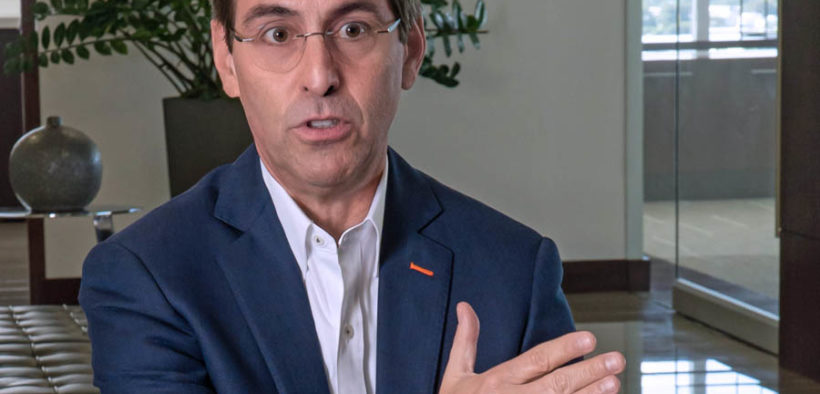Oriental CEO: ‘Puerto Rico should not experience a recession’

Puerto Rico can sidestep a recession, like the one predicted for the US mainland, relying on the influx of federal COVID-19 stimulus money and disaster recovery funds, said Oriental Bank CEO José Rafael Fernández.
Still, the economy could slow down during the second half of the year and Oriental will keep “a watchful eye on inflation and its economic repercussions in Puerto Rico, particularly on consumers,” he said during a call with members of the media to discuss the bank’s second quarter results.
The report for the three-month period ended June 30, 2022, showed an increase in revenues to $146.3 million compared to $133.3 million for the same period in 2021.
Net interest income stood at $115.1 million compared to $102.3 million in the same year-ago quarter.
In his discussion with reporters, Fernández mentioned the bank’s growth in loans and deposits, net interest margin, and a rebound in banking and wealth management income.
Oriental reported new loan originations of $587.2 million compared to $623.2 million in the first quarter of 2022 and $673.6 million in the second quarter of 2021, which included $32.7 million of U.S. Small Business Administration Paycheck Protection Program loans.
The current second quarter reflected continued high levels of auto and consumer lending as well as commercial lending in Puerto Rico and the US mainland.
“We saw continued loan volume increases in all three of our key businesses, 4.7% increase in commercial loans, 9.7% increase in consumer loans, and 3.2% increase in auto loans [to $193 million],” he said.
During the quarter, the financial institution repurchased $30.6 million of its shares, completing $64.1 million of its current $100 million buyback program.
Meanwhile, he said while mortgage loan closings have slowed down somewhat in the US mainland because of the interest rate hikes, Puerto Rico’s market is different because of the shortage of available homes for sale, which “creates an important demand in that business that will continue, although the refinancing market will be zero.”
He also said Puerto Rico home prices have not increased as proportionally as the rest of the continental US, so there’s still an opportunity for those prices to continue increasing.
Fernández also recognized the challenges affecting the island, such as skyrocketing electricity costs and the increase in cost of living.
Consensus is needed on labor reform
In response to a question from News is my Business on the controversy surrounding the recently passed amendments to Puerto Rico’s labor law, Fernández said the different components need to come together to find consensus.
“Puerto Rico’s leaders including the Executive, the Legislature, the Financial Oversight and Management Board for Puerto Rico, and the private sector, we all have to sit down at the table and talk clearly about the repercussions of this reform and more than that, the goals we want to reach from the perspective of global competitiveness,” he said.
“There are labor issues, technological issues, infrastructure issues and many others, and from what I see, there hasn’t been that deep discussion about what the true common good is,” he said.
“The labor reform is not optimal, because it’s not looking at the common good, it’s looking at specific sectors that do have needs that can be met, but that must be looked at from the global competitiveness aspects that we need,” he said.












